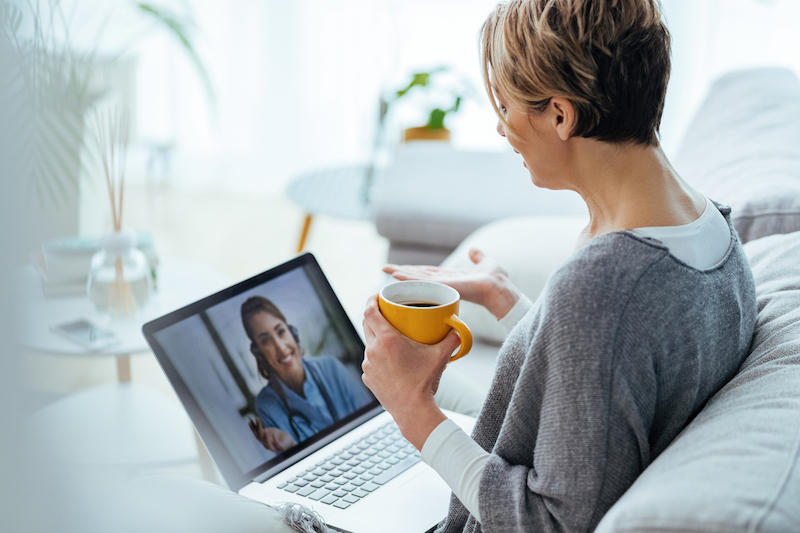
COVID-19 forced rapid changes in the way many of us work. Companies that previously resisted allowing employees to work from home suddenly had no choice, and healthcare practitioners who’d been reluctant to embrace telemedicine realized that patient safety in a pandemic could depend on it. Though in-person visits will always be preferred for some medical conditions, in many cases, virtual visits can stand in and ensure that care is uninterrupted. For those with persistent vaginal and vulvar problems, they can be essential.
As practitioners and patients continue to adjust to using technology to connect, we wanted to bring together a few experts to discuss their challenges and how they’ve overcome them. We invited a panel of practitioners for a candid discussion about how doctors, nurses, and therapists can optimize telemedicine consultations with menopausal patients who have chronic vaginal dryness, irritation, and pain. And though the webinar was intended for practitioners, it gives patients good insight into what they can expect and how they can prepare for a virtual visit.
Global pharma expert Nancy Phelan hosted four practitioners:
- Dr. Dana Shanis, of Vhealth & Wellness;
- Dr. Sabitha Pillai-Friedman, a sex therapist and associate professor at Widener University;
- Dr. Katherine Sherif, director of women’s primary care at Jefferson University; and
- Dr. Deborah Saltman, FemmePharma medical/scientific director.
Watch the webinar
Tips for patients
A great virtual visit requires some preparation. Here’s how you can do your part:
- Schedule your appointment for a time when you’re not responsible for doing something else, such as supervising your child or preparing dinner. Your visit is no time to multitask.
- Log in from a quiet, private space. You’ll be more comfortable talking with your practitioner about sensitive and even awkward topics when you’re not worried about your partner or your child walking in. Need to go into the bathroom and lock the door? Then do that.
- Have a code word to say in case someone does walk into the room so that your practitioner knows not to continue asking questions or making comments about very personal topics you may not care for others to overhear.
- Prop up your device. If you’re holding your phone or tablet, you’re more likely to get distracted by something like the video angle or reading a text message that comes in.
- Have a plan with your practitioner about how you will handle technical difficulties, such as getting disconnected or the video freezing.
- Write down your concerns so that you don’t forget something you want to talk about. (A good idea for in-person visits as well.)
- Examine yourself ahead of time so that you can tell your practitioner about anything unusual you find and even take photos to send to share with him or her.
Do you suffer from vaginal itching, irritation, or pain? These are symptoms of vaginal dryness, which impacts many women, especially after menopause. Check out our science-backed solutions made without hormones, available without a prescription, and delivered right to your door.
Photo: Drazen Zigic